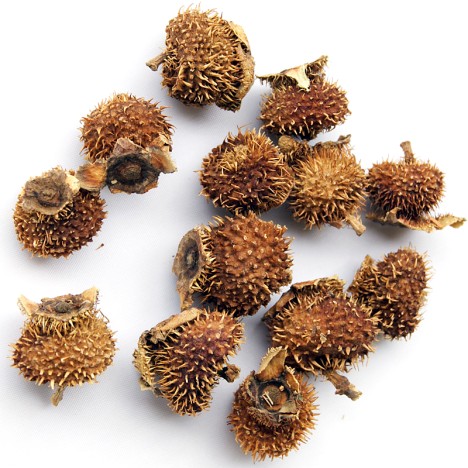Rosa Roxburghii Tratt, also known as Roxburgh rose, chestnut rose or prickly pear, is a member of the Rosaceae family. The plant is native to southwest China and its fruit is widely known for its high vitamin C, superoxide dismutase (SOD, flavonoids and polysaccharides. This fruit has been used for centuries as healthy, functional food and is widely available in over 80 countries. It showed excellent antioxidants, α-glucosidase and α-amylase inhibitory effects and can be used to exhibit superoxide dismutase activity. If you are wondering what these benefits of Rosa Roxburghii Fruit are, read on to learn more about the benefits of this fruit.
Excellent antioxidants
Researchers have studied the phenolic content of R. roxburghii fruit and leaves and found that they contain abundant antioxidants. A comprehensive chemical analysis of R. roxburghii fruit revealed that it contains seventy-one percent flavones and phenolic acids. This antioxidant capacity is related to the metabolite monomers, flavonoids, and triterpenes. We all know that taking a diet rich in antioxidants can help prevent chronic diseases by adding Rosa roxburghii fruit extract in nutritional and functional foods and beverages. In fact, some scientists are already using Rosa roxburghii fruit extracts to promote healthy liver function and improve the function of the digestive system. However, there are no clear-cut answers as to which metabolite of R. roxburghii fruit is most effective. These powerful nutrients also help protect the body from oxidative stress, which increases the risk of heart disease and may even help slow down telomere attrition.
For losing weight
Polysaccharides in the Rosa roxburghii fruit have protective effects against obesity-induced colitis and slow the absorption of dietary carbohydrates.The fruit extracts were also effective in increasing tight junction proteins. This resulted in a reduction of inflammation cytokines and intestinal permeability. In addition, dietary polysaccharides have been shown to reduce inflammation in animal models of obesity-induced colitis.
Cancer prevention
It is also a promising source of anticancer agents. Research has also demonstrated that R. roxburghii fruit can inhibit the formation of cancer and increase lifespan in mice. Chestnut is an excellent source of vitamin C and vitamins E, with a nutritional value comparable to that of many other citrus fruits. It has many health benefits, including promoting resistance to infections, aiding calcium and iron absorption, and preventing scurvy. Additionally, it eliminates cancer-causing free radicals in the body, especially vitamin E. In addition, it is also beneficial for cancer prevention, and has even been used in folk and herbal medicine for centuries. The fruit of the chestnut rose has been used to treat a number of ailments, including stomach problems and cancer.
Lower blood sugar
Rosa roxburghii fruit is an excellent source of vitamin C. Glucose is a common problem for diabetics and the fruit of the Rosa roxburghii tree can help. Research has shown that it can help patients with a number of chronic diseases and can help people manage their blood sugar levels. It is known to suppress the a-glucosidase enzyme, which is responsible for lowering blood glucose levels after a meal.
Have you ever thought about the health benefits of Rosa Roxburghii fruit? The rich vitamin C, vitamin E and SOD make it a good source of antioxidants, its nutritional value should be recognized and used by the food industry. Research is underway to increase the Rosa Roxburghii’s production and improve its shelf life. A recent study published in the journal Scripta Horticulturae suggests that it may provide a variety of health benefits. While most domestic cultivars don’t produce the fruits, those that do contain a high amount of vitamin C and SOD may be good food supplements.




